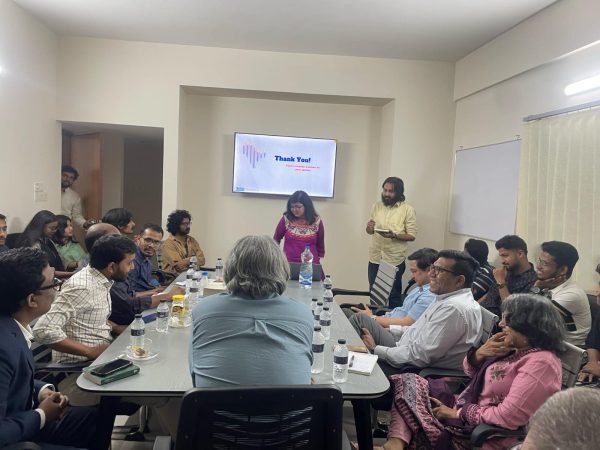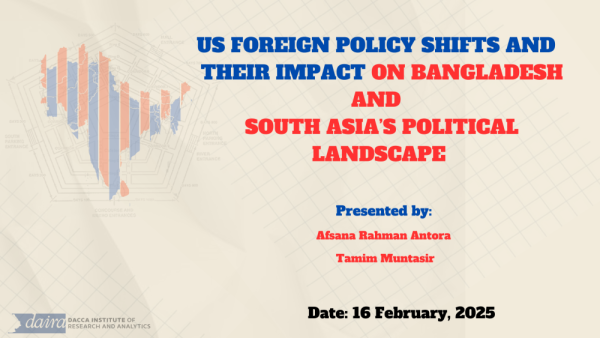Impact of US Foreign Policy Shift on the Political Landscape of Bangladesh and South Asia
This paper analyzes the impact of U.S. foreign policy shifts under the Trump administration on South Asia, particularly Bangladesh. It examines how Trump’s nationalist, protectionist stance influences regional stability, economic ties, and diplomatic alignments while considering the institutional constraints on presidential power in foreign policymaking. Trump’s approach prioritizes economic protectionism and border security but risks alienating allies, disrupting supply chains, and accelerating economic fragmentation. His policies contribute to the decline of the U.S.-led global order, reinforcing a shift toward a multipolar world. Under Trump, diplomacy is no longer about fostering alliances or upholding international norms, it is assumed that “business and economy will be the new language of U.S. diplomacy.”
This position paper was presented in a roundtable discussion by faculty members from various departments and institutions. Notable participants included Professor Dr. Lilufar Yasmin (Department of International Relations, University of Dhaka), Professor Asif Mohammad Shahan (Department of Development Studies, University of Dhaka), and Mahfujur Rahman (Assistant Professor, Department of International Relations, Bangladesh University of Professionals), along with foreign stakeholders and researchers. The diverse audience engaged in a vibrant discussion, enriching their understanding of the topic.
Here is the Presentation, US Policy Shift PPT



